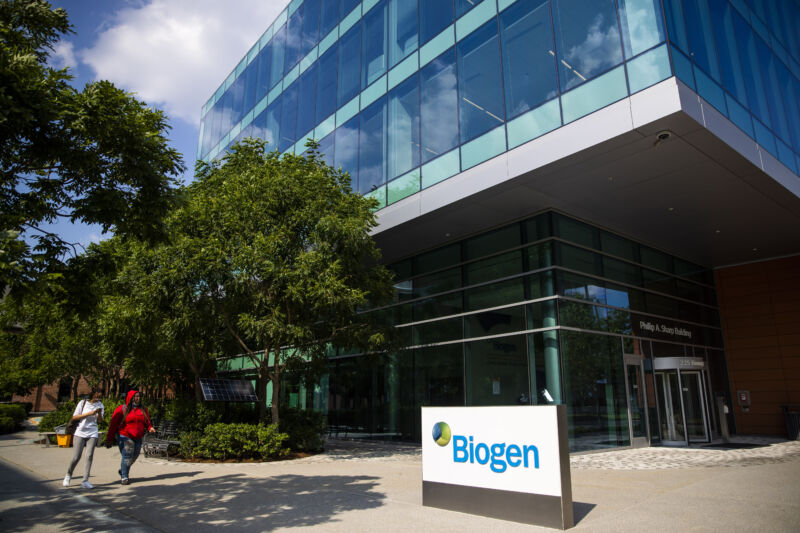
Concern is mounting over the price of the controversial new Alzheimer’s drug Aduhelm. Advocates, lawmakers, and critics worry in particular about what the drug’s $56,000 per-year list price will do to Medicare. The federal insurance program is available to those age 65 and over, which covers the vast majority of the roughly 6 million adults with Alzheimer’s in the US.
As it stands, the cost of Aduhelm—a doctor-administered intravenous drug—has the potential to eclipse the amount of money Medicare spends on all other doctor-administered drugs and retail prescription drugs, combined.
The Food and Drug Administration granted approval of Aduhelm earlier this month, sparking widespread and intense criticism. Experts and industry watchers have called the decision “disgraceful” and “dangerous,” noting that clinical trials of Aduhelm did not clearly show that the drug is actually effective at treating Alzheimer’s. The fact that Aduhelm’s maker, Biogen, set the list price so high only intensified the criticism.
An analysis earlier this month by the Kaiser Family Foundation pointed out that if just a quarter of the 2 million Medicare beneficiaries who currently use an Alzheimer’s treatment—so 500,000 or so beneficiaries—begin taking Aduhelm, it would cost Medicare an estimated $29 billion a year. In 2019, Medicare spent $37 billion on all doctor-administered drugs, total.
A new analysis released Monday by Stat pushed the numbers further. The outlet estimated that if all 5.8 million Medicare-eligible adults with Alzheimer’s began taking Aduhelm, it could cost Medicare $334.5 billion a year. Stat noted that $334.5 billion is nearly half of the entire budget for the Department of Defense—or about 4 million Tesla Model Xs (for those who think in terms of Teslas). The eye-popping total also significantly exceeds Medicare’s spending on doctor-administered and retail prescription drugs combined, which totaled about $220 billion in 2019.
“Serious concerns”
It’s, of course, impossible to predict just how many people will end up taking Aduhelm and how long they’ll stick to the treatment. But the mushrooming cost estimates are not out of the question. Among its many controversial moves, the FDA approved Aduhelm for use in all Alzheimer’s patients even though Biogen only tested the drug in people with mild disease. And despite the lack of efficacy data, many patients are hopeful and eager to try the drug. Aduhelm is the first newly approved drug for Alzheimer’s in nearly two decades.
But critics say the drug has only raised false hope among patients and their families, as well as eroded regulatory standards. Earlier this month, a leading industry watchdog called for three top FDA officials behind the decision to resign or be fired. Meanwhile, three expert advisers to the regulator resigned their posts in protest. The advisers were part of an 11-member panel that overwhelmingly voted against approval last November.
Now lawmakers are taking action on the contentious drug. Last week, Sens. Bill Cassidy, MD (R-La.) and Elizabeth Warren (D-Mass.) called for a hearing to “examine the vexing new questions and challenges” Aduhelm's approval raises for Medicare. And on Friday, the House Committee on Oversight and Reform announced that it is opening an investigation into Aduhelm’s approval and pricing.
“We have serious concerns about the steep price of Biogen’s new Alzheimer’s drug Aduhelm and the process that led to its approval despite questions about the drug’s clinical benefit,” Reps. Carolyn Maloney (D-N.Y.) and Frank Pallone Jr. (D-N.J.), who are leading the investigation, said in a joint statement.
So far, Biogen and the FDA appear to be taking the criticism in stride. Biogen CEO Michel Vounatsos defended the pricing, saying in a conference call earlier this month: “We believe that the price is substantiated by the value it is expected to bring to patients, caregivers, and society.” And acting FDA Commissioner Janet Woodcock, meanwhile, told Stat that she is just “not that concerned” about the intensifying backlash.
reader comments
248 with